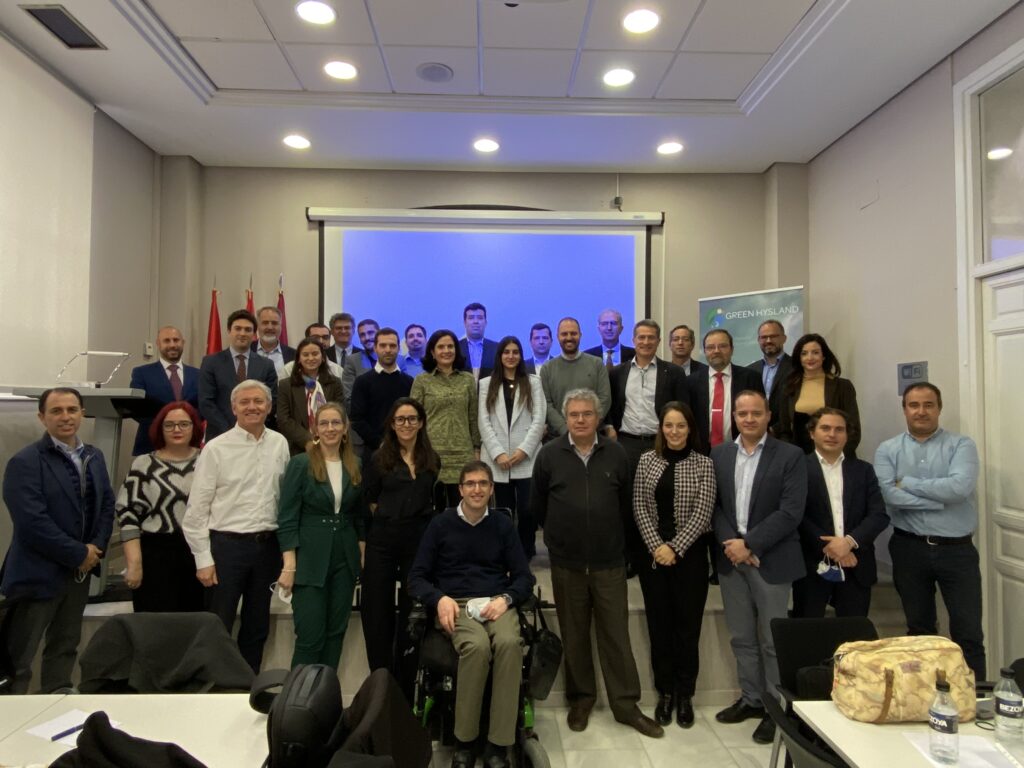Gasnam members gathered in Madrid for a Green Hysland workshop on green hydrogen

Organised on the 29th of March at the Madrid International Lab, the workshop was attended by 40 companies to discuss green hydrogen deployment, strategy and regulatory framework.
The workshop was organised in the framework of the exploitation strategy currently being developed by Green Hysland partners. In this context, at the start of the year, Gasnam and FEDARENE sent a survey to their members to evaluate their knowledge and interest on green hydrogen use and production.
On the 29th of March 2022, Gasnam members were therefore invited to further discuss the survey and the related issues. These were stakeholders from various sectors: consultancy companies, utilities, transport companies, port authorities, etc. They were divided in 5 groups to discuss the following topics:
- Hydrogen production and logistics: the outlook for compliance with the goals in the roadmap published by the Spanish government, strategic, regulatory and technical barriers;
- HRS construction: the outlook for compliance with the goals in the roadmap, the regulatory framework, applicable regulations, incentives policy;
- Published aid: the assessment of the suitability of the aid being offered as far as attaining the goals, difficulties accessing aid, aspects to be reviewed;
- The use of hydrogen for road transport: outlook on the vehicle offer, aid intensity, barriers to transformation;
- The use of hydrogen for maritime transport and at ports: the outlook for compliance with the roadmap goals, barriers to production and use. Equipment availability, drive in national production, barriers.
Barriers to overcome
Overall, participants agreed that there is still a long way to go to achieve the goals set out at Spanish level for green hydrogen notably due to the lack of public economic aid, the absence of regulatory framework for guarantees of origin, the cost of the equipment, the scarce technical training and the limited development of the industrial system. Indeed, according to them, economic support remains needed as long as there is not enough demand for the manufacturing chains to grow.
To create a renewable hydrogen culture and make consumers ambassadors for this clean energy vector, financial aid is also needed.
Yet, they remain convinced that green hydrogen has a role to play in the decarbonisation of the country and can help achieve Spain and Europe’s CO2 reduction targets – notably in the transport sector.
Regulations should be developed to encourage the use of renewable hydrogen as currently they are too restrictive and bureaucratic procedures are quite lengthy. Renewable hydrogen must be treated as a fuel of general interest and not just as a mere chemical product.
